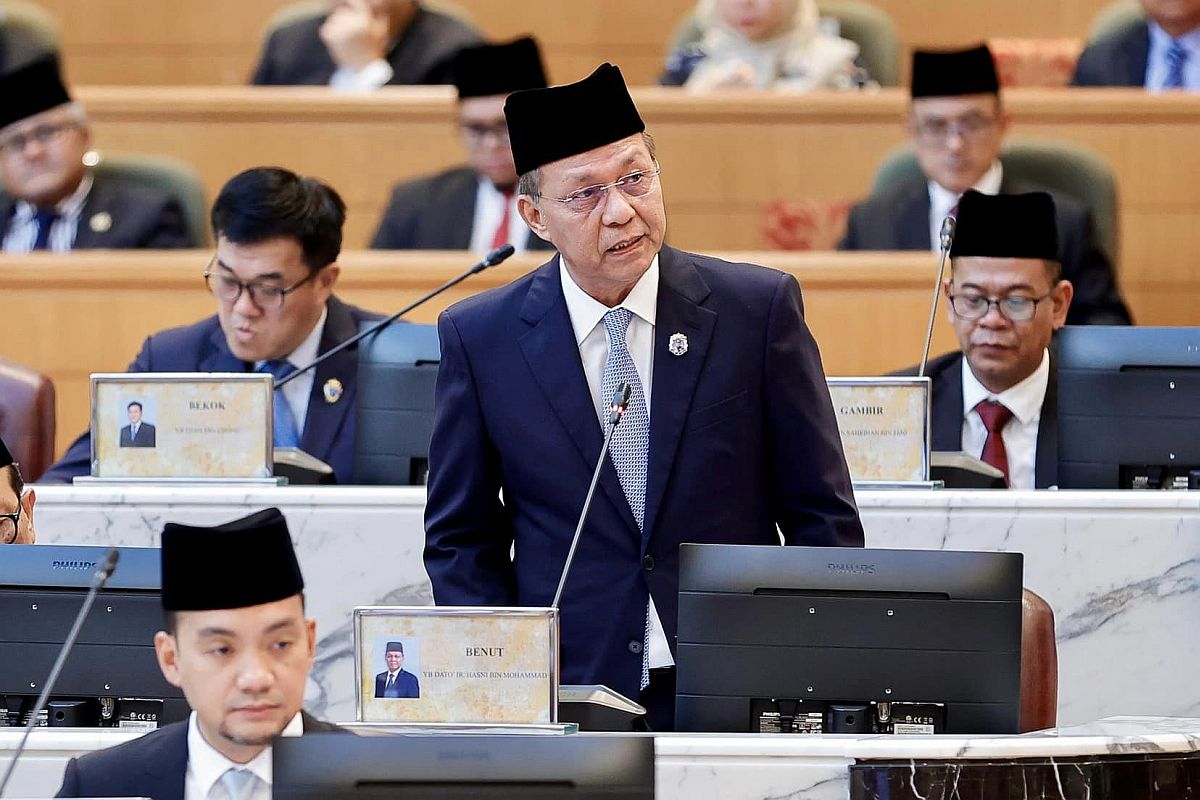KUALA LUMPUR, Oct 27 – The Johor state government, supported by the state ruler, wants the federal government to consider excluding the terms “electronic device” and “smoking device” in the Control of Smoking Products for Public Health Bill 2023.
Hasni Mohammad, Simpang Renggam MP and former Johor Menteri Besar, told CodeBlue that the objective is to allow the continued manufacturing of electronic devices used for e-cigarettes or vaporisers, while remaining subject to existing manufacturing regulations.
“The idea that we should remove [the term] ‘electronic device’ from the tobacco bill is based on the fact that it is already subject to regulations under various Acts.
“There are institutions like SIRIM, the Ministry of Investment, Trade and Industry (MITI) – all of these electronic devices are already monitored by many agencies under MITI. So, why should the Ministry of Health (MOH) take over?
“Let it be under MITI so that this technology of electronic manufacturing can continue to evolve,” Hasni told CodeBlue when contacted Wednesday.
CodeBlue sighted a letter dated August 20 from the Sultan Johor’s Private Secretary Office to the Prime Minister (PM) Anwar Ibrahim’s Office, in which Johor ruler Sultan Ibrahim Sultan Iskandar decreed his support for Hasni’s proposal, as chairman of the Johor Economic, Tourism and Cultural Office (Jetco) in Singapore, not to include the terms “electronic device” or “smoking device” in the Control of Smoking Products for Public Health Bill, a federal legislation.
The letter indicated that Hasni had an audience with the Johor ruler to propose improvements to the bill.
The letter from the palace further stated that it included an attachment of a letter from Johor Menteri Besar Onn Hafiz Ghazi, requesting the federal government not to include the term “electronic device” in the tobacco and vape control bill.
The main letter bears multiple “Received” stamps, indicating that it had been received and acknowledged by the PM’s Private Secretary Office on October 9, followed by the PM’s Office (PMO) on October 11, and the PMO’s development division (bahagian pembangunan) on October 12.
CodeBlue sought verification of the letter from the PMO, the Royal Press Office, and the Johor state executive council, but none were able to provide confirmation. Hasni confirmed with CodeBlue that his proposal received Sultan Ibrahim’s support.
Hasni clarified that should the federal government agree to remove the term “electronic device” from the tobacco bill, the continued manufacturing of electronic devices for e-cigarettes and vapes would be exclusively for export, not for local consumption.
Johor houses a factory by American multinational tobacco company Philip Morris’ that employs nearly 3,000 workers, with over 500 suppliers providing the necessary components for electronic devices such as plastic moulding.
“Just remove the term ‘electronic device’, so that it continues to be regulated under MITI under the SIRIM Act, the Electricity Supply Act – there are 12 main laws that govern the manufacturing of this device,” Hasni said.
While advocating for the exclusion of the term “electronic device” from the tobacco bill, Hasni said he has no objections to supporting the generational end game (GEG) ban on tobacco and vape products in the Control of Smoking Products for Public Health Bill.
“Having said that, we are in support of the idea to ban smoking – whether it’s through the GEG or deciding on an age bracket, we support the idea. We support the idea.
“For me personally, and even the state government, we are all in support of the idea about smoking control. What happens subsequent to that, whether there will be smuggling or illegal cigarettes, that doesn’t matter,” said Hasni, who is also Benut state assemblyman.
“This is not the Johor state government doing a 180-degree turn, no. There is still an understanding with all the pihak berkuasa tempatan (local government authorities) not to issue licences to vape manufacturers or retail outlets selling vape (locally),” Hasni said.
Johor became the first state to ban the sale of all vape products, with the law taking effect on January 1, 2016, following a decree by Sultan Ibrahim.
Even after the declassification of liquid nicotine as a scheduled poison and the imposition of an excise tax on e-cigarette liquids or gels containing nicotine from April 1 this year, Johor was the only state to maintain its ban on the sale of vape products. Neighbouring Singapore also prohibits e-cigarettes and vape.
If the federal government decides to heed the Johor state government’s proposal, it would mean yet more amendments to the contentious bill that had already been proposed for amendments by the Health parliamentary special select committee (PSSC).
It’s unknown if amendments can be done in time for tabling and passage of the bill by end of the current Dewan Rakyat meeting on November 30.
The Control of Smoking Products for Public Health Bill is not just about banning cigarettes and vapes for future generations born from 2007, but also seeks to regulate both tobacco and vape products in a single principal Act.
There are currently zero regulations on e-cigarettes (such as restrictions on sales; advertising, promotion and sponsorship; nicotine content; and packaging), while tobacco products are regulated under the Food Act 1983.
The federal government, more than two weeks ago, postponed the tabling of the tobacco and vape control bill for second reading, originally scheduled for October 9.
Despite the pressing need for the bill, given Health Minister Dr Zaliha Mustafa’s decision to exempt liquid nicotine from the Poisons Act 1952 last March 31, the MOH justified the delay by citing the need to address “other government business” in Parliament.
Several MPs on both sides of the divide have recently urged the federal government to table the bill in Dewan Rakyat.
Kuala Langat MP Dr Ahmad Yunus Hairi (PN-PAS), who heads Perikatan Nasional’s (PN) health committee, questioned the fate of the Control of Smoking Products for Public Health Bill after an MPs’ briefing on the tobacco and vape control was abruptly cancelled the day before the bill was supposed to be tabled for second reading.
The Opposition MP, a member of the Health PSSC that is chaired by former health minister and Kuala Selangor MP Dzulkefly Ahmad, said that the parliamentary select committee held 11 meetings to discuss and review the bill, with the expectation of reaching a resolution.
Failure to pass the bill during the current Dewan Rakyat meeting, which is scheduled to end in just four weeks, would create a significant legal gap (lacuna), potentially exposing more teenagers and children to vaping and the risk of nicotine addiction.
Batu Bahat MP Onn Abu Bakar (PH-PKR) said it was time to “hit the emergency button” on the tobacco bill, citing heavy costs in managing smoking-related diseases and alarming EVALI (e-cigarette or vaping product use-associated lung injury) data by the MOH.








